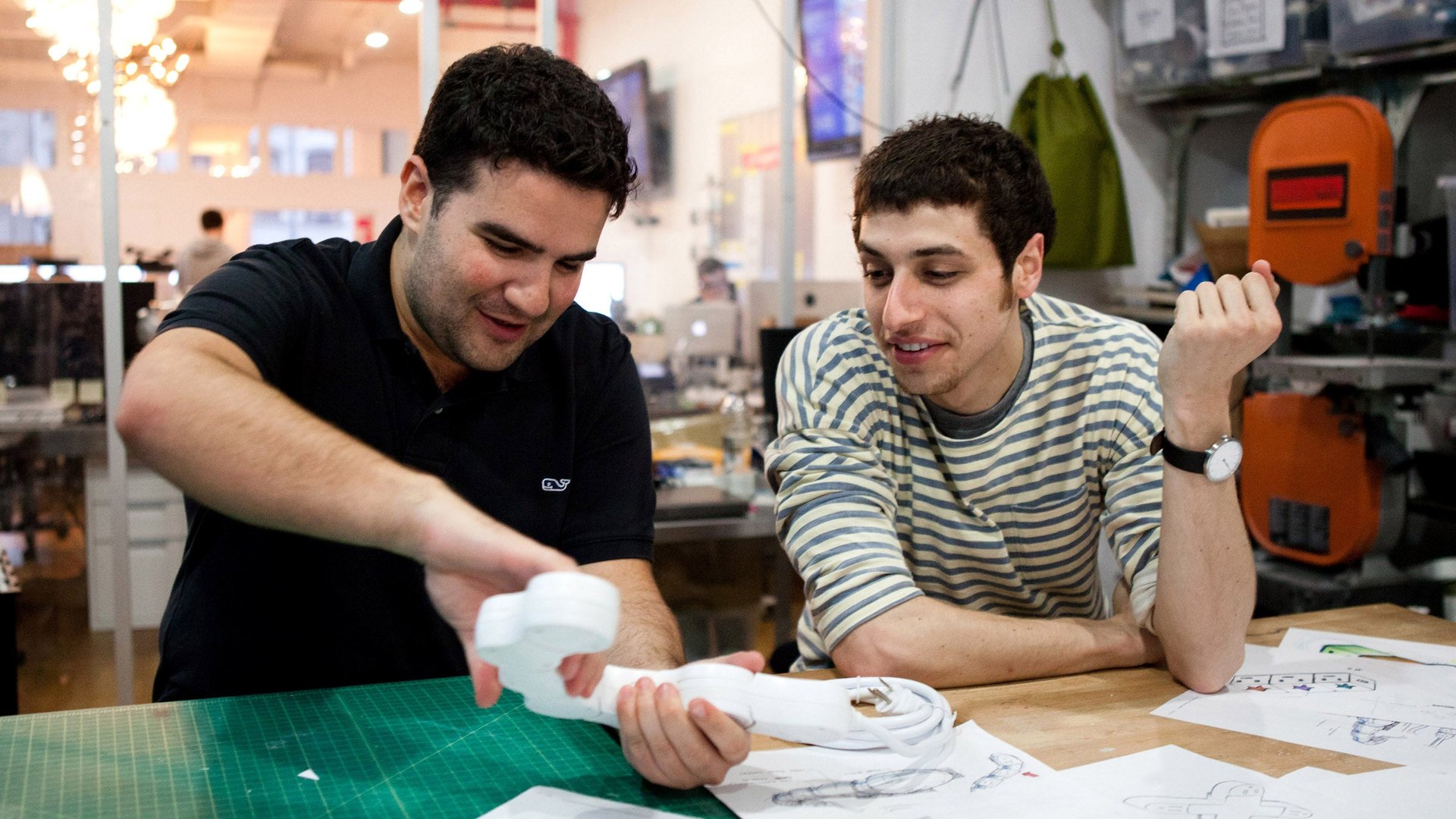Will the internet’s crowd-sourced inventors take over GE’s appliance business?
GE—then, General Electric—was founded by America’s most famous inventor, Thomas Edison, to bring his innovations to the masses. Now, the masses are bringing innovation to the 122-year-old firm through Quirky, a crowd-sourced inventions company that has worked with GE and could end up acquiring its appliance division.


GE—then, General Electric—was founded by America’s most famous inventor, Thomas Edison, to bring his innovations to the masses. Now, the masses are bringing innovation to the 122-year-old firm through Quirky, a crowd-sourced inventions company that has worked with GE and could end up acquiring its appliance division.
Quirky relies on its online community to identify inventors with smart products—from power strips to wine-openers—and then prototypes, manufactures, and markets the items. The five-year-old company has teamed up with GE to bring a small line of products to the market, most notably, the Aros air conditioner.
Now, Quirky reportedly is considering a joint offer with private equity investors to purchase the conglomerate’s consumer products division, which is on the sales block as GE CEO Jeffrey Immelt plans to focus more intensely on the company’s industrial business lines. Though the consumer business has a distinguished history—marketing an electric toaster in 1905 and a washing machine in 1930—it has fallen behind major global competitors like Whirlpool and Haier, as well as Electrolux, which also is expected to put in a bid.
A deal with Quirky would mark a return to GE’s roots as an innovation company, and give the startup significant access to manufacturing infrastructure and intellectual property to expand its business. It also would be an experiment in integration; Quirky relies on 3-D printing, prototyping, and speedy manufacturing in China to get products from conception to market far faster than many traditional firms might be comfortable with.
It would likely be a boon for the development of the “internet of things,” when products integrate sensors and network connectivity to become more efficient and effective; the Aros, for instance, learns what temperatures its users enjoy and automatically adjusts its settings to produce the desired climate as cheaply as possible.